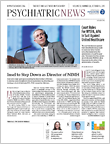During the two-week period from August 29 to September 11, the country commemorated anniversaries of two of the most fateful events in recent history—Hurricanes Katrina and Rita and the 9/11 terrorist attacks. In addition to the terrible loss of lives caused by these events, numerous people have suffered severe psychological damage resulting in posttraumatic stress disorder and other conditions. At the same time, there are many people who bounced back, and some who experienced posttraumatic growth with greater sense of personal strength, more intimate relationships, and recognition of new possibilities for one’s life. These are examples of resilience.
Resilience is not a rare ability and is not restricted to major disasters. Different degrees of resilience are present in average individuals. Resilience is broadly defined as the capacity to adapt to challenging situations as well as the ability to endure and bounce back in the face of adverse life events. Resilience is at the core of the emerging positive psychiatry movement which diverges from the traditional deficit models focused on psychopathology and moves toward strength-based models focused on mental health. This shift will encourage clinical care that fosters positive states of mental health and supports recovery.
Empirical investigations have shown resilience to be associated with improved health, social engagement, positive outlook, and greater life satisfaction in the face of complex stresses. Higher levels of resilience are associated with a reduction in the severity of PTSD and depressive symptoms in clinical and nonclinical populations. Other research has demonstrated the molecular biology and epigenetics of resilience, while also suggesting behavioral and biological means of enhancing resilience.
There are inspiring examples of extraordinary resilience by people with severe mental illnesses—for example, John Nash and Elyn Saks, who made incredible contributions to society despite chronic schizophrenia. William Carlos Williams, a physician who battled recurrent major depression from adolescence onward and subsequently had heart disease and strokes, wrote Pulitzer Prize–winning epic poetry in his later life.
Resilience can be found in individuals with mental illness seen in everyday practice. There are multiple and often unexpected pathways toward resilience. First and foremost, the clinician should assess every patient’s strengths and resources to develop a personalized plan for enhancing her or his resilience trajectory. In clinical practice, strength-based interviewing is useful for uncovering resources and positive influences that have assisted the individual in successfully overcoming stressful events in the past. The clinician can then develop an individualized plan for enhancing resilience that includes positive attitude, cognitive flexibility, social support, and active coping skills.
Take the case of 45-year-old Jessica, who was seen in our clinical program for major depression precipitated by a difficult divorce. While an antidepressant helped reduce her depressive symptoms, she continued to feel “so alone, and not knowing who I am anymore.” In the first few sessions, the clinician-therapist used focused questioning to develop a strength-based narrative with the patient. The object was to identify major stressors in the past, what coping mechanisms she used with varying degrees of success, how the current event provided an opportunity for further growth, and how she could still recruit family and community resources to support her healing.
Jessica told the therapist that the most severe loss in her earlier life was that of her father to cancer when she was in her 20s. As she recounted this experience, the therapist noted and then spotlighted her ability to recover from this past adversity through the development of social support networks that enhanced healing, her volunteerism with the American Cancer Society, and nurturing her own personal health through yoga classes. With this knowledge of the patient’s personalized resilience pathway, clinical intervention was directed toward redeveloping these coping strategies and continuing to develop a strength-based narrative surrounding this specific event. This shift, from deficit to strength, provided the opportunity to cultivate positive mental health and personalized resilience pathways.
The emerging models of overall health care emphasize well-being and personalized medicine. Positive psychiatry, exemplified by individualized resilience-enhancing strategies, will enable psychiatry to move to the front and center of health care. ■

